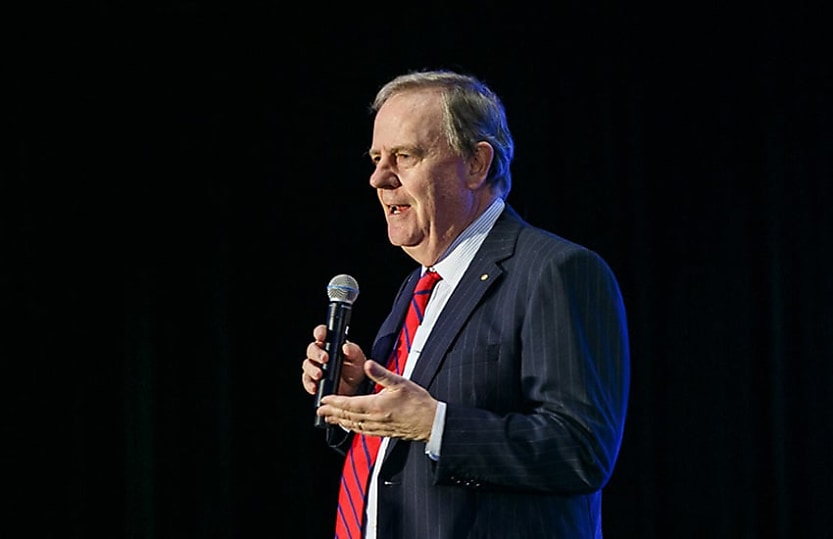‘Bad precedent’: Costello slams Treasurer’s super tax

The super tax is just one failure among many in the government’s “inflationary” federal budget, says the former federal treasurer.
Former treasurer Peter Costello has warned that the complexity of the government’s proposed tax on unrealised gains on superannuation accounts will outweigh its benefits.
Such a tax has been looked at “many times,” and each time it surfaces, the conclusion is the same: that taxing unrealised gains fails to deliver bang for buck.
“The government is proposing to tax unrealised capital gains and then tax again when gains are realised unless they try to work out some kind of credit system,” he told an event hosted by the Financial Services Council on Wednesday morning.
“The complexity will be unbelievable,” he said.
Should the changes clear parliament, unindexed superannuation balances worth more than $3 million will begin paying a concessional 30 per cent tax on unrealised capital gains from 1 July 2025.
Within the first year, the tax – which would in many cases double the current concessional rate of 15 per cent – is expected to generate $2 billion.
What this figure might overlook is the potential for account holders to withdraw their savings, as warned by Costello.
“There are behavioural changes here and if the government says you shouldn’t have more than $3 million in super, what will you do it? You could put it in the family home, and it would be tax free. Would that be good for the economy? No, but it’s quite legal.
“It won’t raise taxes because it doesn’t take into account behavioural changes. But it will establish a bad precedent on the tax of unrealised capital gains. And so, when someone comes along and says, ‘oh what about other parts of the economy, let’s tax unrealised gains there’ … it would establish a very bad precedent that people down the track would like to use.”
Treasurer Jim Chalmers said doing away with the tax break would affect only 0.5 per cent of Australians, while the rest of the population would continue to receive “the same generous tax breaks.”
The move to levy the tax on unrealised gains has inspired sharp criticism from the SMSF sector.
Announced in February last year, the bill is stalled in the lower house, led by a Greens initiative to bring the threshold down to $2 million.
Greens Senator Nick McKim said the $3 million threshold is “too high,” and that it “could be lowered to super balances of $2 million and still only hit the wealthiest 1 per cent of accounts.”
Costello also took the opportunity to poke holes in the vision underpinning the federal budget more broadly, pushing for tighter spending.
“I would argue that fiscal policy should be tighter than it is in the current environment … we don’t want to contribute to inflation,” Costello said.
Second only to the mining boom of the 1850s, Australia is experiencing the greatest trading conditions in its history, he said.
“You may not feel like it in the domestic economy but the things we trade, principally things – like iron ore, coal, gas – are at all-time record costs. So, we are in this boom and in times of boom you should be paying off debt, because when things turn down, you’ll probably be running it up so I think we should be running a tighter fiscal policy so we can pay down debt,” said Costello.
“When you look at the budget it has gross debt going from $900 billion to $930 billion. I think we ought to be out on financial markets retiring debt, both for the macroeconomic and financial reasons.”
“Will this budget increase pressure or relieve pressure on inflation? Well, it won’t relieve it and to the extent of its stimulus, it will increase it. Are payments going up? Yes. Is the bottom line deteriorating? Yes. Is debt increasing? Yes.”
“On any measure, this is a budget that is stimulatory and will add rather than detract from inflation.”
The only thing driving Australia’s productivity, he added, is population increase and last year it went backwards.
“[A decline] is very rare in Western industrialised societies,” he said. “You might see a slowing in the increase … but it’s very rare to see a fall in productivity.”






